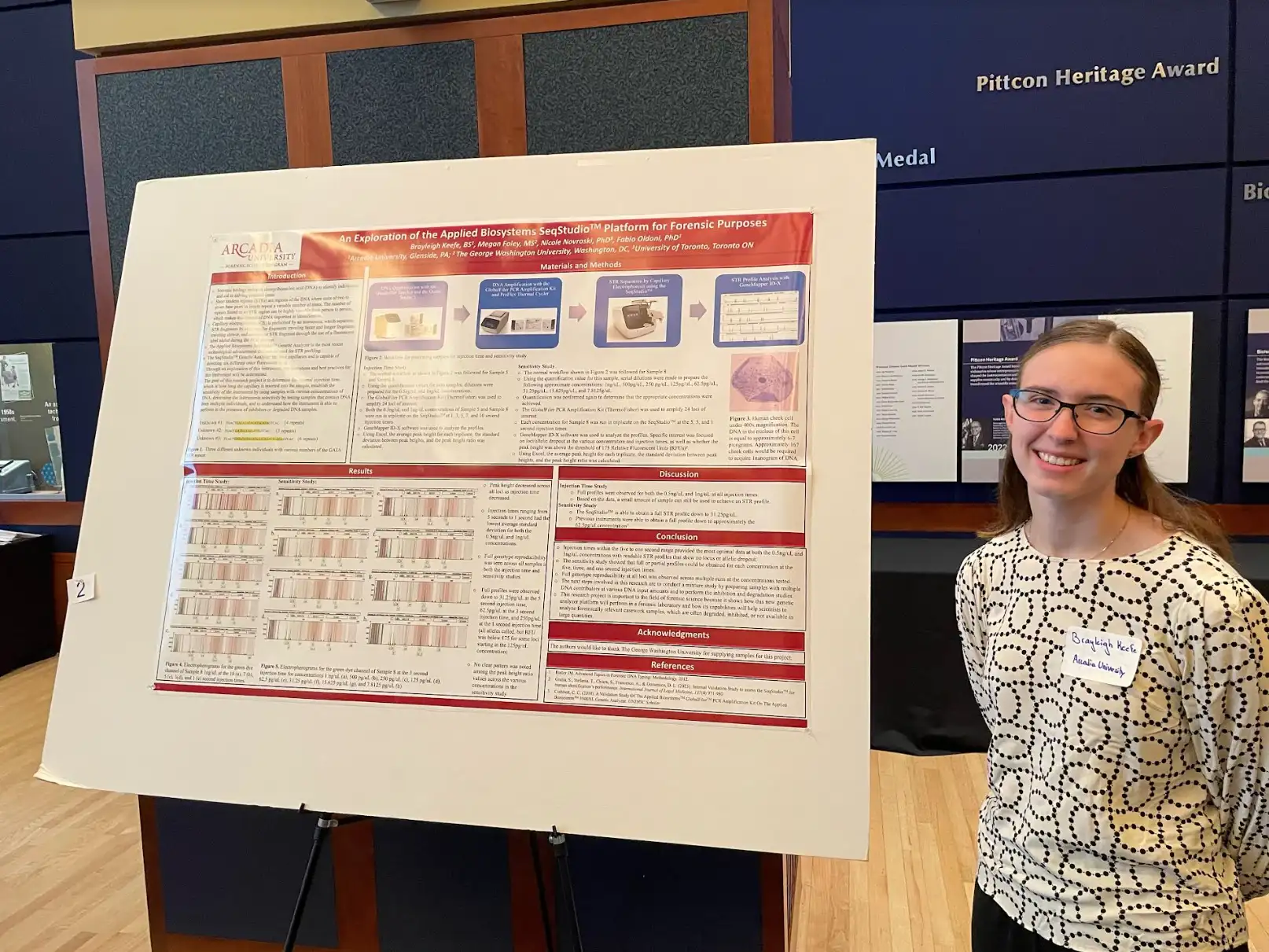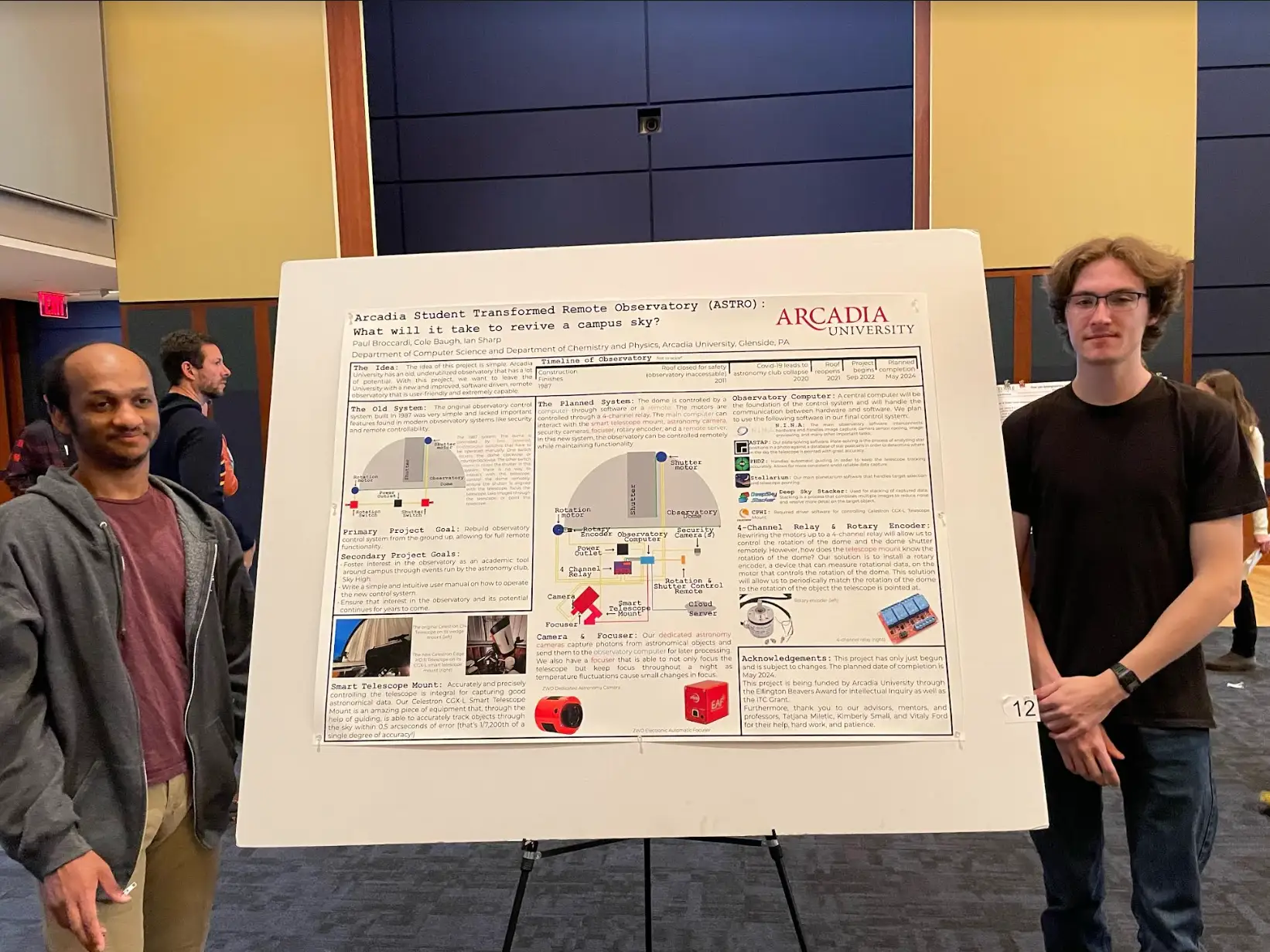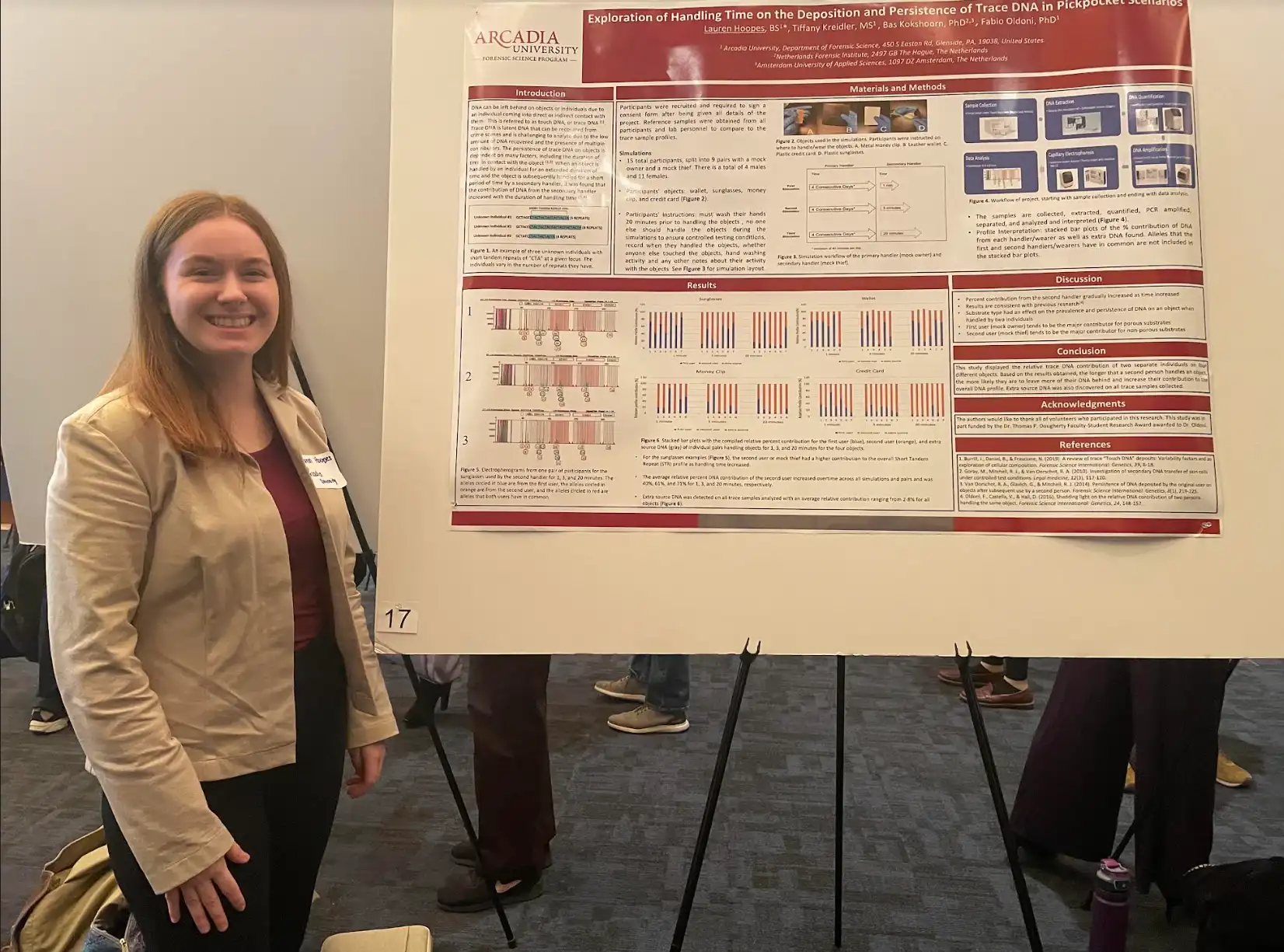Arcadia Students Present Posters at Start Talking Science Symposium



On Friday, November 3, 2023, two second-year students from Arcadia University’s Master of Science in Forensic Science (MSFS) program, Brayleigh Keefe and Lauren Hoopes, and three fourth-year undergraduate students, Cole Baugh, Paul Broccardi, and Ian Sharp, presented research posters for the Start Talking Science Symposium at the Science History Institute in Philadelphia, Pennsylvania.
Dr. Fabio Oldoni, Director of the Arcadia Master’s Program in Forensic Science, and Dr. Tatjana Miletic, Director of the Chemistry, Physics, and Pre-Engineering programs, and Chair of the Chemistry and Physics Departments at Arcadia University, are the distinguished advisors on these projects.
Keefe presented her current forensic biology research project with a poster titled, “An Exploration of the Applied Biosystems SeqStudio Platform for Forensic Purposes.” Keefe’s forensic biology research project aims to evaluate the Applied Biosystems SeqStudioTM Genetic Analyzer for human identification purposes. The SeqStudio instrument is the most recent genetic analyzer platform to be introduced into the forensic science community. It uses capillary electrophoresis (CE) to allow for short tandem repeat (STR) DNA profiling. The ultimate goal of Brayleigh’s project is to identify the best standard practices for the SeqStudio instrument including parameters such as injection time, sensitivity, selectivity, degradation, and inhibition on the instrument. This project is highly relevant for the forensic science community as identifying the best practices will be critical for further laboratory work using the SeqStudio and the implementation of this genetic analyzer platform into forensic casework.
Hoopes presented her previous forensic biology research project with a poster titled, “Exploration of Handling Time on the Deposition and Persistence of Trace DNA in Pickpocket Scenarios.” In this research project, four different objects were selected for the simulation of mock pickpocketing crimes. An investigation into the contribution of DNA recovered from the different objects handled (or worn) by both a primary and secondary user for varying time durations was performed. Lauren’s research provides helpful insight to the forensic science community as it can aid investigators in determining the potential of detecting an individual’s DNA profile when only a trace amount of DNA is collected from evidentiary items of different substrate types that may have been handled by more than one individual.
Baugh, Broccardi, and Sharp are fourth-year Arcadia undergraduate students who presented their computer science/astronomy-based senior thesis research project at the Start Talking Science Symposium with a poster titled, “ASTRO (Arcadia Student Transformed Remote Observatory).” The aim of their project is to redesign and configure the control system inside of an observatory built in 1987 so that it interacts with modernized computer software and can be controlled remotely from any location without losing its functionality. With their new design, a user should be able to securely connect to and control the observatory dome as well as the equipment inside, like the telescope and camera, among other things, to capture astronomical data. This data should then be able to be saved to a remote server that can be securely accessed at any time by authorized users for data sharing or processing. In addition, cameras will be installed inside the observatory dome as a part of this project to monitor the equipment both for safety and security purposes.

